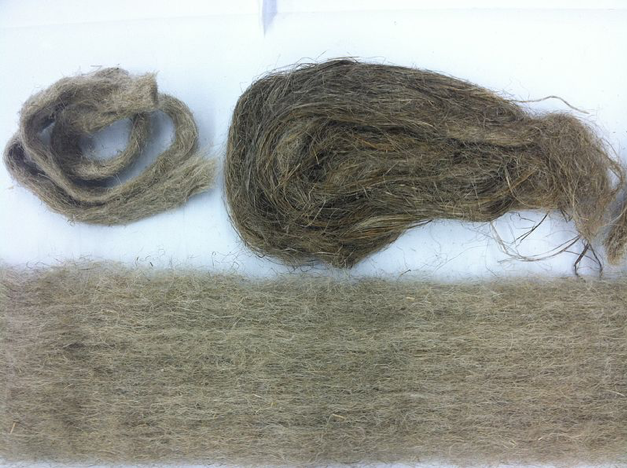Humans are in constant interaction with textiles from the moment they’re born until after they’ve passed. Textiles are something that everyone is familiar with, but don’t really know that much about. Great advances have been made in the realm of synthetic fibres, dyes, and chemistries since the early 20th century, but human use of textiles made from natural materials predates written historical records.
In this talk, we’re going to discuss the environmental impacts of current “fast fashion” and textile production, and how the industry is shifting in the era of climate change. We will also give an overview of the wide range of natural materials used in textile manufacture, and a brief exploration of some research being done on alternative silk materials.
Mary Glasper is a Materials Developer working in the outdoor apparel industry in Vancouver. She has a BSc in Biology, an MSc in Textile Science, and has professional experience working in both fields. While her current work focuses on primarily synthetic performance fabrics and chemistries, she is keenly interested in natural materials and biomimicry. Her masters research focused on studying the silk produced by the Greater Wax Moth, Galleria mellonella.

Flax (Linum usitatissimum) fibres that can be used for textiles. Photo from Wikimedia Commons by Aamiri77. https://commons.wikimedia.org/wiki/File:Flax_fibers.JPG
This talk with a researcher is recommended for ages 9 and up with the occasional support of an adult to help with zoom or typing. You’ll have opportunity to ask questions if you join us live!
Join all of the Beaty@Home sessions from anywhere around the world. All you need is an internet connection. You can join us on Zoom or on Facebook live! You can also call in over telephone, simply register below for the Zoom link and the list of numbers. Click here to register!
If you would like to contribute to the museum, you can pay what you can on the registration page. In addition, we appreciate any donations (tax-deductible), purchasing a membership (activated when we are open), planning to visit in person when safe to do so, and sharing information about the museum with friends and family. Thank you for your support of the Beaty Biodiversity Museum!
